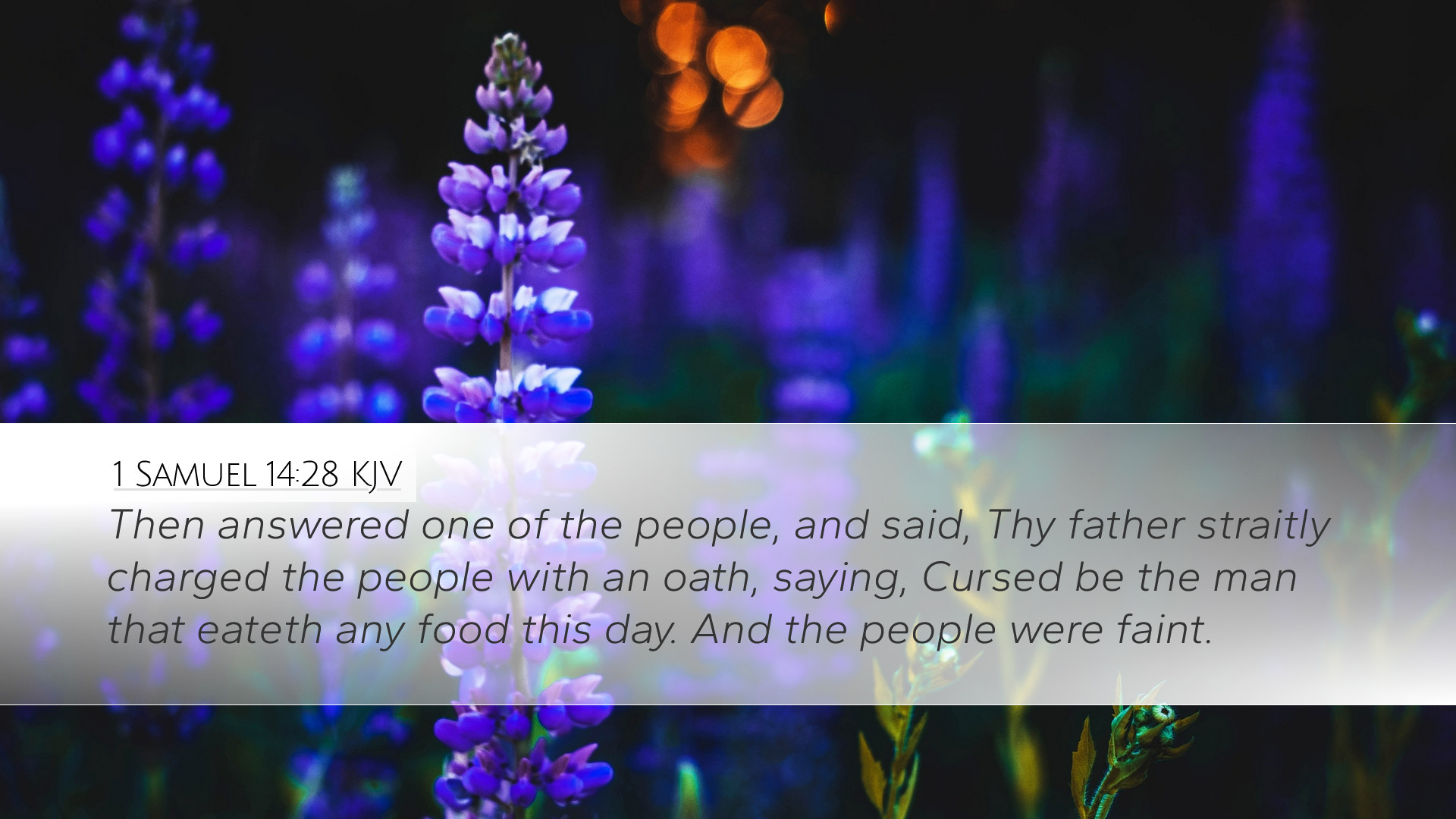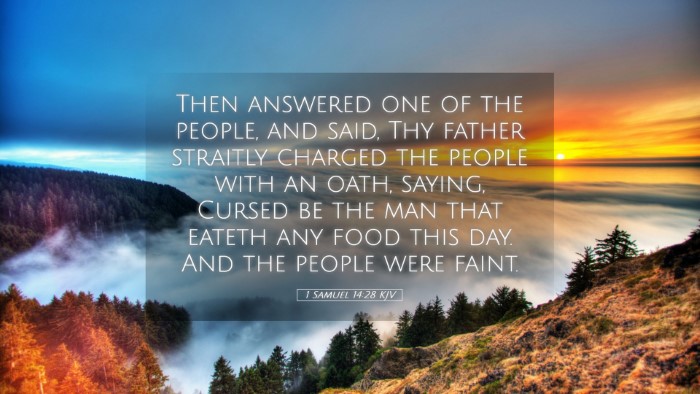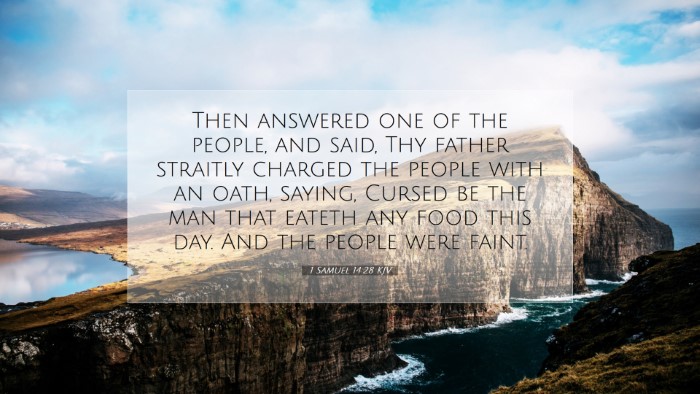Commentary on 1 Samuel 14:28
Bible Verse: "Then answered one of the people, and said, Thy father straitly charged the people with an oath, saying, Cursed be the man that eateth any food this day. And the people were faint." (1 Samuel 14:28, KJV)
Introduction
This verse encapsulates a significant moment in the narrative of Saul's kingship and highlights the tension between authority and the well-being of the people. The oath of Saul, the king, stands in stark contrast to the physical needs of his soldiers, illustrating a critical examination of leadership, obedience, and moral responsibility. As we delve into commentaries, we will draw insights from renowned theologians such as Matthew Henry, Albert Barnes, and Adam Clarke, who provide depth and context to this biblical text.
Contextual Background
Historical Setting: The events unfold during a time of conflict in Israel as they face the Philistines. Saul, striving to consolidate his power and authority, issues a rash oath that inadvertently places the lives of his soldiers in jeopardy.
Character of Saul: This passage reveals significant aspects of Saul’s character. He is depicted as a father figure who, in his zeal, fails to consider the needs of his men. His command reflects a decisive nature but also a lack of foresight and compassion.
Commentary Insights
Matthew Henry
Henry emphasizes the folly of Saul's command, noting that the king's strictness brought unnecessary hardship to the people. He points out that while oaths are essential in governance, they must serve the higher good of those being governed. Henry suggests that Saul's rash pronouncement was influenced by his anxiety over his position and therefore lacked wisdom.
Albert Barnes
Barnes highlights the people's response to Saul’s oath. He indicates that their faintness illustrates the physical toll of neglecting their needs. Barnes reflects on the implications of authority figures making decisions without consulting the well-being of their constituents. The verse underscores the dangerous consequences of leadership that prioritizes rigid adherence to commands over compassion and care.
Adam Clarke
Clarke examines the potential motivations behind Saul's oath, suggesting that it may have been a misguided attempt to establish order and discipline among his soldiers following a period of turmoil. However, he points out that this decision had the opposite effect, leading to suffering and rebellion among the troops. Clarke encourages leaders to seek wisdom and discernment, particularly in times of crisis, as the decisions made can profoundly impact those under their charge.
Theological Implications
- Authority and Accountability: The verse serves as a reminder that leaders are accountable for the well-being of those they lead. Saul's command led to dire consequences, highlighting the moral obligation that comes with leadership.
- Compassion in Leadership: The passage teaches the importance of compassion. A leader's strictness must not eclipse their empathy for the struggles faced by followers. Effective leadership finds balance between authority and kindness.
- The Role of Oaths and Vows: Saul's oath raises questions about the nature of vows in the context of governance. While oaths can serve to create accountability, they should not be made at the expense of human need.
Practical Applications
This commentary not only offers a rich exegesis of the verse but also provides valuable lessons for modern readers, particularly pastors and church leaders:
- Decision-Making: Leaders are called to consider the implications of their decisions carefully and seek counsel from those most affected by their commands.
- Building a Culture of Compassion: Ministries should strive to foster environments where leaders prioritize the well-being of their congregations, ensuring their needs are met holistically.
- Emphasizing Wisdom in Leadership: Effective leadership requires wisdom to balance authority with care, prompting a reflective approach to governance and community engagement.
Conclusion
1 Samuel 14:28 encapsulates a moment of tension between leadership and the welfare of people. Through the insights gleaned from the commentaries of Matthew Henry, Albert Barnes, and Adam Clarke, we recognize the multifaceted implications of Saul’s oath. It serves as a cautionary tale about the responsibilities of leaders and the paramount importance of compassion, wisdom, and accountability. As we continue to study the Scriptures, may we apply these lessons to foster a more loving and supportive community under God’s guidance.


